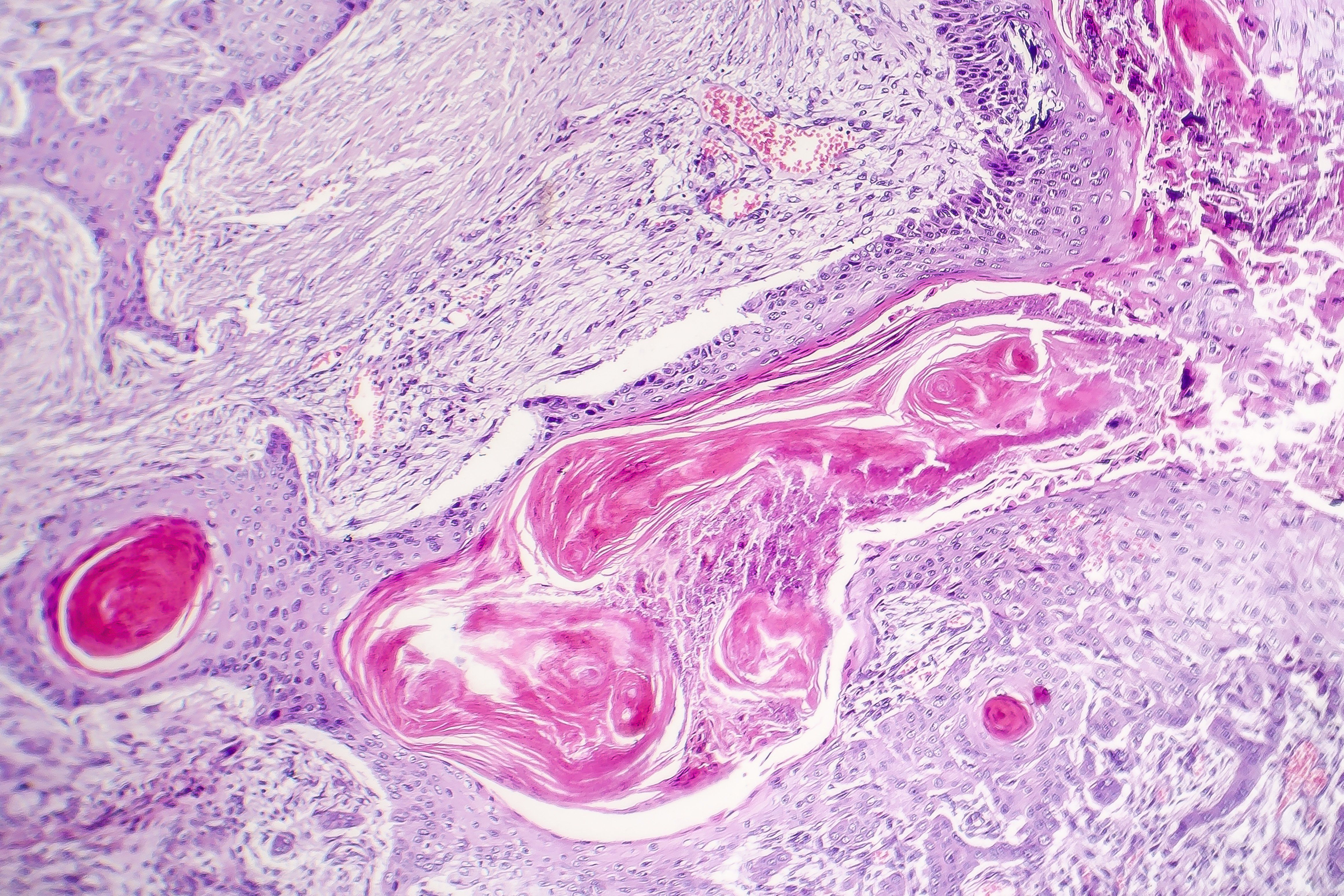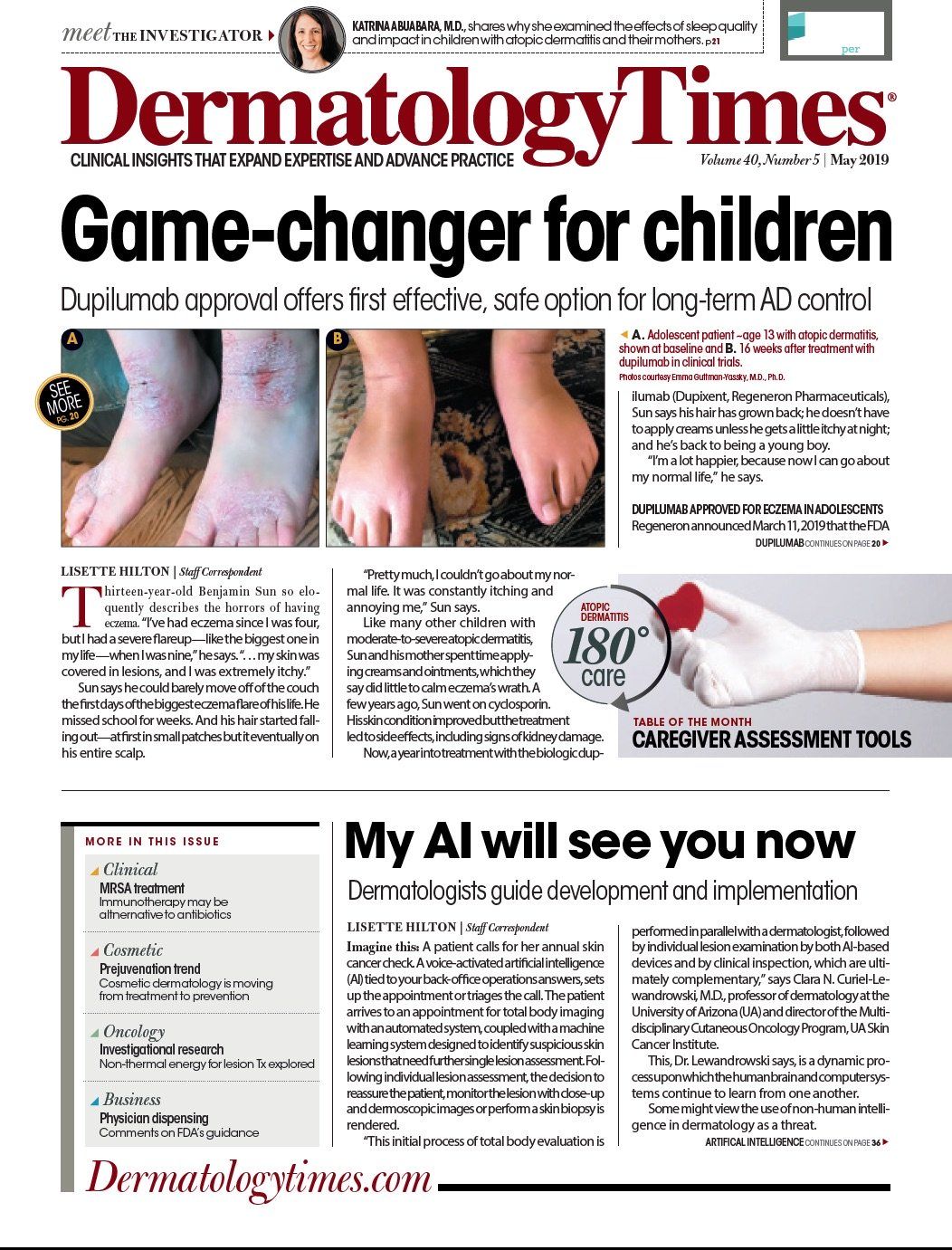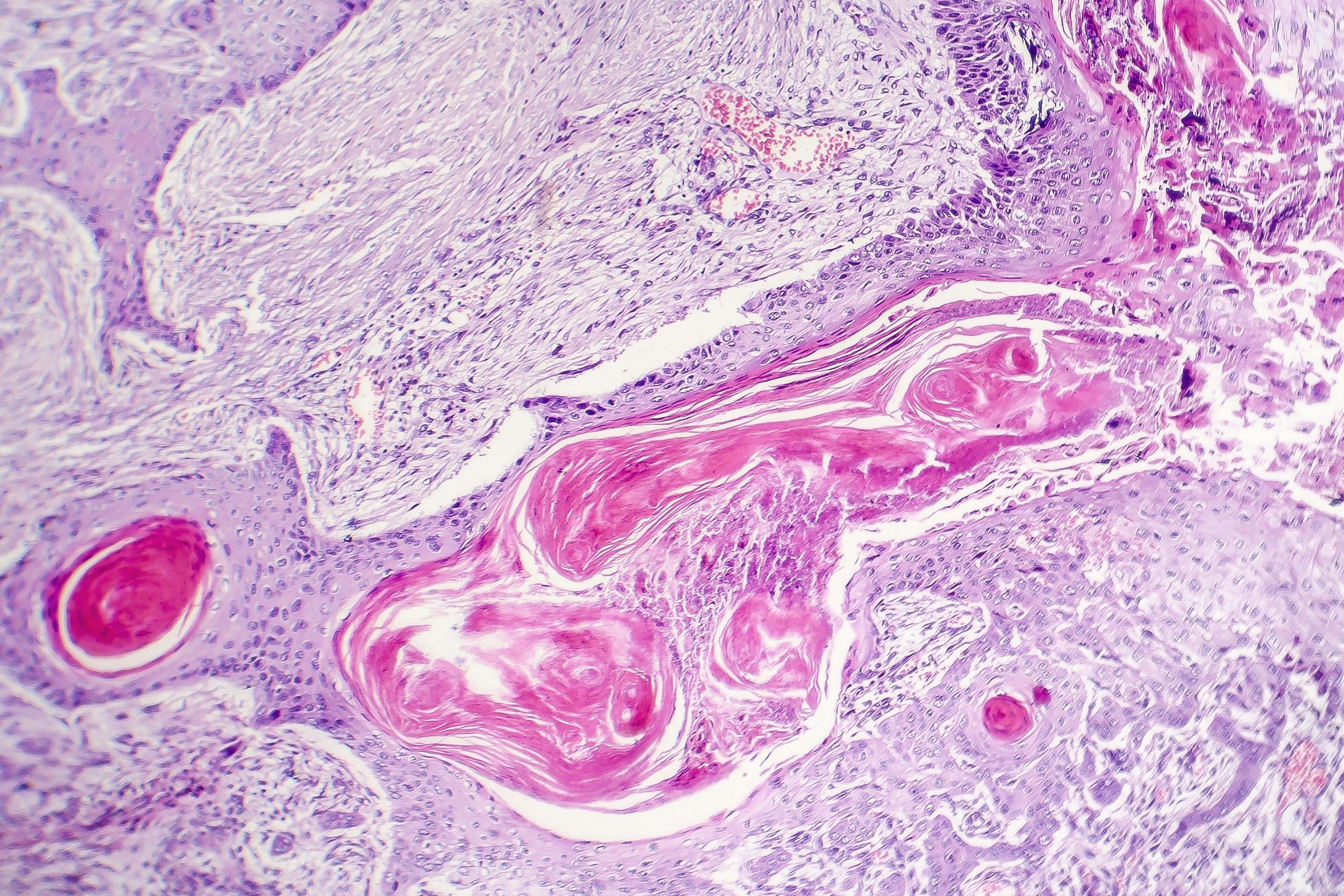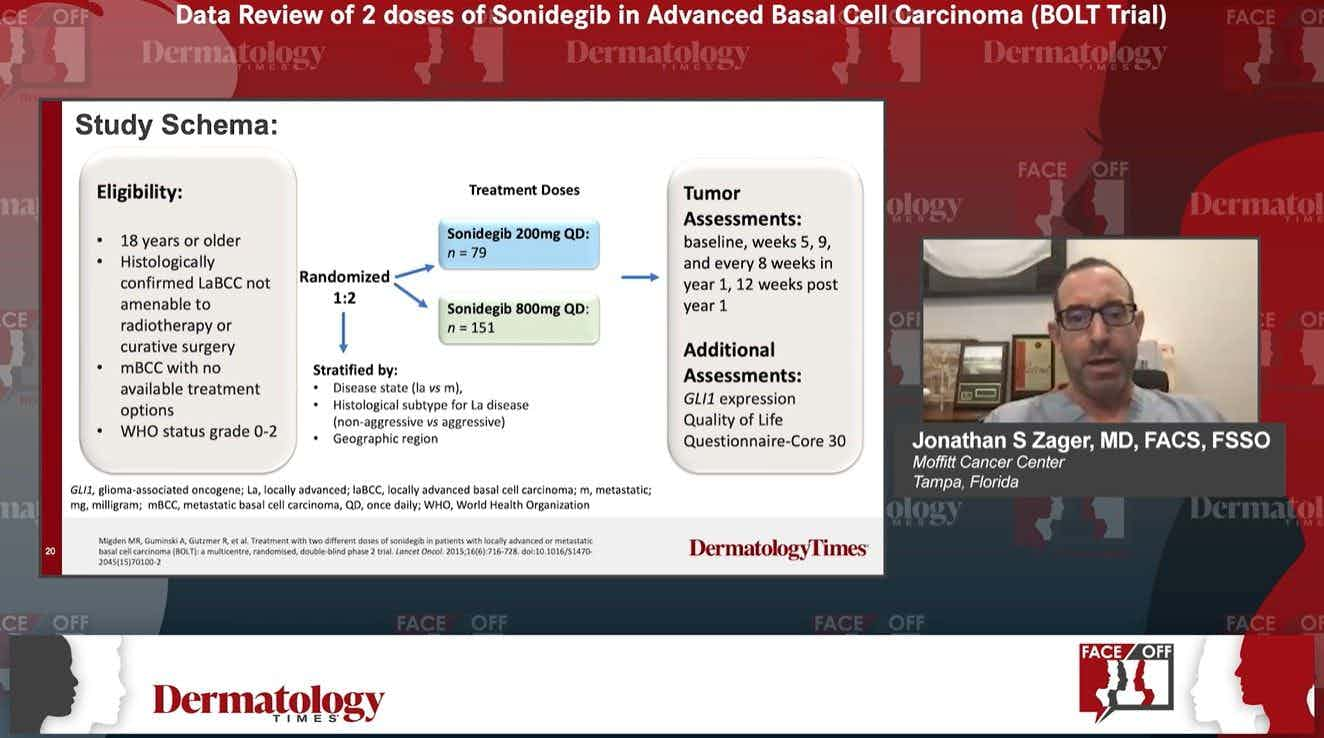- Acne
- Actinic Keratosis
- Aesthetics
- Alopecia
- Atopic Dermatitis
- Buy-and-Bill
- COVID-19
- Case-Based Roundtable
- Chronic Hand Eczema
- Chronic Spontaneous Urticaria
- Drug Watch
- Eczema
- General Dermatology
- Hidradenitis Suppurativa
- Melasma
- NP and PA
- Pediatric Dermatology
- Pigmentary Disorders
- Practice Management
- Precision Medicine and Biologics
- Prurigo Nodularis
- Psoriasis
- Psoriatic Arthritis
- Rare Disease
- Rosacea
- Skin Cancer
- Vitiligo
- Wound Care
Publication
Article
Dermatology Times
Advances in squamous cell carcinoma management
Author(s):
Better awareness in disease progression and improved understanding of field cancerization has shifted the thinking in management of patients with squamous cell carcinoma.
Better awareness in disease progression and improved understanding of field cancerization has shifted the thinking in management of patients with squamous cell carcinoma. (Kateryna_Kon - stock.adobe.com)

Recent advances in how to better stage and treat squamous cell carcinoma (SCC) have changed the understanding and approach of this ubiquitous and potentially deadly disease.
Coupled with the advancement of offering SCC patients more effective targeted immunotherapies, clinicians are also becoming more sophisticated at risk-stratifying patients and more aware of the importance to appropriately stage their SCC patients, said Vishal A. Patel, M.D., FAAD, FACMS, director of cutaneous oncology, GW Cancer Center.
“It’s an exciting time for patients with squamous cell carcinoma, in that many of the lessons learned from the results of immunotherapy and melanoma have now been applied to SCC, particularly those patients with more advanced disease,” said Dr. Patel, who also is assistant professor of dermatology, GW School of Medicine & Health Sciences, Washington, D.C. He spoke at the Orlando Dermatology and Aesthetic Conference.
SCC STAGING
The Brigham and Women’s Hospital or American Joint Committee on Cancer (AJCC) tumor staging systems are currently being readily used to stage patients. Although both are imperfect, Dr. Patel stressed that it is important for clinicians to use one so that they can offer patients the most optimal treatment and management strategies.
“If you’re not staging your SCC patients, you should be. Although both systems need refinement, it has really helped us to take out some of the guess work; to figure out who is going to be among those who may need most extensive treatments now or down the road; and we might now start to look at how to treat that subset patient population earlier,” Dr. Patel said.
It is crucial that physicians get into the habit of staging their patients and to push their histopathologist to report on the mosaic of typical risk factors that have become validated, including perineural invasion and depth of invasion.
According to Dr. Patel, following this approach is not only the best way to be able to provide SCC patients cutting-edge care but also assists in keeping all clinicians on the same page regarding staging and the potential therapeutic options among SCC patients.
“At present, I think the Brigham and Women’s Hospital staging system works a bit better than the AJCC based on what we know; however, I believe the AJCC should eventually become the gold standard staging system once certain factors and parameters are adjusted for. It is an imperfect system but only when you actively use it you can figure out the flaws. We need to all get on the same page and using these staging systems is the first step to help achieve that,” Dr. Patel said.
DISEASE PROGRESSION
A more acute awareness in the progression of disease from actinic keratosis (AK) to SCC and better understanding in the concept of field cancerization has also shifted the thinking in how to approach patients with actinic damage.
Actinic keratosis and field cancerization remain a concern, Dr. Patel said, mostly because of the less than optimal data available on how to best treat and manage these patients. Continued work on field cancerization has led researchers to believe that AKs are possibly simply markers in a complex disease process, not unlike the relationship between heart disease and stroke.
According to Dr. Patel, AKs are markers from an underlying problem and therefore, the underlying problem
needs to be treated.
“We are becoming more aware of treating that underlying field cancerization, most recently witnessed in the efforts seen in trials with nicotinamide to potentially reduce the risk of non-melanoma skin cancer formation. As more work is being done into how we can quantify that risk progression from AKs to actual disease, or if there really even is an actual progression, we can approach it in a more sophisticated way using nicotinamide for oral prophylaxis, topical retinoids and topical chemotherapies, as well as rejuvenating modalities such as chemical peels and PDT, giving clinicians a more refined way of treating these patients,” Dr. Patel said.

Newsletter
Like what you’re reading? Subscribe to Dermatology Times for weekly updates on therapies, innovations, and real-world practice tips.





























